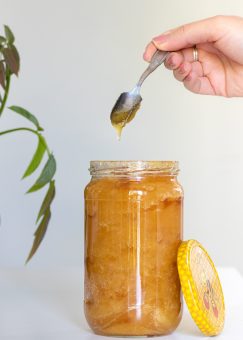Today, World Bee Day is being marked across the globe – a day aimed at raising awareness about the vital role bees play in preserving biodiversity, sustaining ecosystems, and ensuring global food security. At the same time, this day reminds us of the growing threats bees face – from habitat loss and pollution to climate change and harmful agricultural practices – all of which directly endanger their survival and, consequently, the future of our planet.
At the initiative of the Slovenian Beekeepers’ Association, the United Nations declared May 20th as World Bee Day in 2017. Boštjan Noč, President of the European Beekeeping Association and President of the Slovenian Beekeepers’ Association, warned that beekeepers are losing the motivation to continue, and if they start leaving the practice, we are facing a disaster in the near future.

“Quite simply, there will be fewer bees each year, and as a result, the free pollination services they provide will disappear – this will seriously impact food production… So, Europe – it’s now or never! This concerns bees, beekeepers, and consumers,” said Noč, as reported by the Association of Beekeeping Organizations of Serbia.
He identified several key measures to protect beekeepers and bees, including the urgent removal of fake honey from the European market, as well as direct payments to beekeepers through agricultural and environmental programs to support the free pollination services provided by bees.
Causes of Bee Population Decline
More than 75 percent of the world’s food crops depend, to some extent, on pollinators – including bees, butterflies, birds, bats, and other insects.
Without pollinators, many nutritionally rich crops – such as fruits, vegetables, nuts, and seeds – could be replaced by less nutritious crops like rice, potatoes, and corn. This would directly jeopardize the nutritional balance of human diets, especially in poor and rural communities.
According to data from the United Nations Food and Agriculture Organization (FAO) and other relevant organizations, current extinction rates of pollinator species are 100 to 1,000 times higher than natural rates, mainly due to human activities. Estimates indicate that about 35 percent of invertebrate pollinators, including bees and butterflies, and 17 percent of vertebrate pollinators, such as bats and birds, are at risk of extinction.
The main threats to pollinator survival include habitat loss, intensive agriculture, excessive use of pesticides, herbicides and fungicides, pollution, and climate change.
Bees are not just honey producers – they are indicators of environmental health. Their presence, behavior, and well-being reflect the state of ecosystems – including air, water, and soil quality. Therefore, their disappearance should not be viewed as an isolated biological event, but as a sign of broader ecological imbalance.
More:
- Record-Breaking Barrier Removal in Europe 2024 – 2,900 km of Rivers Restored to Natural Flow
- International Day of Forests: Global Challenges and the State of Forests in Serbia
- Earth Day 2025 – Dedicated to Renewable Energy
How Can We Help Protect Bees?
Everyone can contribute to bee protection – whether as an individual, beekeeper, farmer, policymaker, or member of the community:
Citizens can:
- Plant native flowers that bloom at different times of the year,
- Buy local, raw honey,
- Avoid using pesticides in gardens,
- Set up water fountains for bees,
- Raise awareness and educate others about the importance of bees.
Beekeepers and farmers can
- Reduce and control the use of chemicals,
- Diversify crops and plant pollinator-friendly species,
- Install hedgerows and shelters for wild bees.
World Bee Day is not just an opportunity to celebrate these extraordinary insects but also to acknowledge their crucial role in the future of our food and planetary health. In an era of climate change and growing food supply uncertainty, bees are our quietest – but most important – allies.
Energy portal

